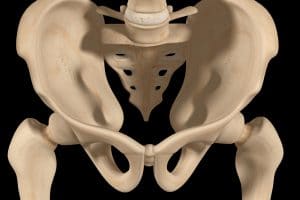This article is a contribution by Penny, a registered nurse and midwife with 20 years experience in nursing and 10 years in midwifery. She is also a mum to two school aged children, so has been on both sides!
This article is only a guide, if you have any concerns make sure to consult a medical professional immediately. If you are in an emergency call 000.
My baby is moving less should I worry?
Are you concerned that your baby may not be moving as much as he/she usually does? Read on to see what you should do next.
This article is by no means intended to scare you but if you are experiencing decreased foetal movements you do need to act. We live in a society nowadays with good medical/midwifery care and most women who fall pregnant expect that they are going to have a healthy baby at the end of their pregnancy, and they should. However, despite good care being available, the rate of stillbirth in Australia is still around 7.1 babies per 1000, that’s 2200 babies each year. Unfortunately, these rates have not improved much over the last 20 years. One of the problems that has been identified is that women on average can delay seeking care for up to 24 to 48 hours after experiencing decreased foetal movements and this can be too late.
The simple message here is that a moving baby is a happy baby. In most cases of stillbirth, the mothers of these infants reported feeling their baby move less in the days leading up to their baby’s birth. A baby will move less when it is not getting enough oxygen to try and compensate and conserve its energy. It is therefore important that you get to know your baby’s movements during your pregnancy, so that you know what is normal for them. You may start to feel your baby’s movements anywhere between 16 – 24 weeks. A baby will generally establish a regular routine of movements from around 28 weeks which should be consistent until you get to term.
Who is more likely to experience a stillbirth?
- Previous Stillbirth: Women who have a previous history of stillbirth are at higher risk of having another baby with a stillbirth, however, this would depend on the circumstances surrounding the previous birth.
- Foetal growth restriction and small for gestational age: If you have a baby that is classified as small for gestational age, it means that your baby is measuring small in size compared with your due date. This may mean that your placenta may not be working as well as it could to supply nutrients and oxygen to your baby.
- Antepartum haemorrhage: If you have experienced any vaginal bleeding in your pregnancy (antepartum haemorrhage). It could be that your placenta may be coming away from the wall of your uterus which again means less blood supply to your baby as above.
- Diabetes: If your diabetes is not managed well during your pregnancy or if you have pre-existing diabetes prior to pregnancy it can cause changes in your blood vessels which can restrict blood flow and blood supply to your placenta.
- Hypertension (High Blood Pressure): Similar to diabetes, poorly controlled high blood pressure can also cause changes in your blood vessels, which can reduce blood flow to your placenta. Pre-eclampsia falls into this category and often women who develop pre-eclampsia tend to have babies that are small for gestational age.
- Parity of 0 or greater than 3: Women who are on their first pregnancy or their 4th or more are more likely to experience stillbirth.
- Advanced maternal age (> 35 years): (Most women probably fall in this category nowadays), but as people age, the structure of our blood vessels changes making them less elastic and a bit more restricted, which again can compromise blood flow to the placenta. However, these age-related changes to the blood vessels aren’t inevitable. If you have a good lifestyle with a good diet and regular exercise this goes some way to counteracting the general age-related changes that you may see in some people. As mentioned previously conditions such as high blood pressure and diabetes are associated with these age-related changes in our bodies.
- In Vitro Fertilisation (IVF): We are not sure exactly why IVF increases your risk of stillbirth but it could be surmised that if your body has trouble achieving and maintaining a pregnancy without support then it is most likely due to issues again with the placenta being able to do its job properly and getting a good blood supply to your baby. This will depend on the type of IVF you had and the amount of support required in the early stages needed to maintain your pregnancy. IVF can also increase your chance of having a premature infant.
- Indigenous Ethnicity: This is certainly by no means meant to be marginalising in any way. Recent research has shown that indigenous women have double the risk of experiencing stillbirth compared with the rest of the population. This could be due to a multiple of factors including living remotely with less access to health services or the inability to access services that respect indigenous culture. This may limit access to regular antenatal care and monitoring.
- Maternal Overweight or Obesity: Being overweight going into pregnancy can increase your risk of developing conditions such as diabetes and high blood pressure which can again impact on blood flow through your placenta and to your baby.
- Smoking, Alcohol or Illicit drug use: This one goes kind of goes without saying. Using any of these substances around the time your baby is conceived or at any stage or your pregnancy can either affect how well your placenta forms in your uterus initially, blood flow to the placenta during your pregnancy and can contribute to potential abnormalities in your developing baby that may contribute to a stillbirth.
- Social Issues: There are many and far reaching social issues that may contribute to a stillbirth. Financial pressures and the demands of caring for other family members may make it difficult for a mother to access regular health and antenatal care check-ups. Issues of family and domestic violence and physical injuries that may come about because of this can also contribute to a still-birth.
What should I do if I am experiencing decreased foetal movements?
If you are experiencing decreased foetal movements you should contact your maternity care provider immediately, whoever that may be. If you are under the care of a caseload/ team or private practice midwife call her/ him directly. If you are under an Obstetrician or GP shared care arrangement, your pregnancy health record should have the numbers of the birthing suites in your chosen birthing facility where you can phone 24/ 7 and talk to a midwife for advice.
What might happen if I present to hospital with reduced foetal movements?
There are several things that a midwife/ obstetrician will check if you present to hospital with reduced foetal movements. The tests that you may end up having done will depend on your symptoms and presentation.
- Your abdomen will be measured to check baby’s growth, if baby is measuring small, this may be related to risk factors for stillbirth (as mentioned previously).
- Your baby’s heart rate will be measured by a handheld ultrasound doppler if you are presenting earlier in your pregnancy.
- You will have a CTG (cardiotocograph) if you are toward the later stages of your pregnancy. This gives more detailed information about baby’s wellbeing including heart rate, activity levels and sleep cycles.
- Depending on your symptoms a blood test (Kleihauer) may be performed to determine if any of the baby’s blood cells have gone into your circulation, especially if you are experiencing any vaginal bleeding.
- An Ultrasound may be done if deemed necessary by the obstetrician.
Common advice which was previously given to women regarding reduced foetal movements which has now changed with new research.
- “Go into a quiet room and sit down for an hour, and have a cold drink to see if the baby wakes up and starts moving”, There may have been some validity in this advice as sometimes when you are busy during the day you may not notice the baby’s movements as much but new guidelines advise that you should be assessed as soon as possible, so don’t waste your time with this advice.
- “Baby’s movements generally get less as you get closer to term” As stated previously, the frequency of movements should remain the same from about 28 weeks until you reach term. Any decreased frequency of movement should be investigated as your placenta may not be functioning as well as it should, especially if you are getting close to or past your due date.
Reasons women may delay in contacting or presenting to hospital for reduced foetal movements?
‘I don’t want to be any trouble’, You are not being a nuisance or wasting anybody’s time for presenting with decreased foetal movements. In fact, the latest guidelines for managing women presenting with reduced foetal movements state that, “Maternal concern of reduced foetal movements overrides any other definition of reduced foetal movements”. I.e. Every woman is different, a normal number of movements in one pregnancy may be too few in another pregnancy. Bottom line, if you feel your baby is moving less than usual, this should be taken seriously. Maternity care providers would rather that people come and be checked out then leave things go and have a potential stillbirth. Again, becoming familiar with what is normal for your pregnancy can be helpful in determining if there has been a change in your baby’s movements. In the majority of cases of stillbirth, these mothers reported that they noticed a decrease in their baby’s movements leading up to their birth.
‘I just had an ultrasound last week and everything was fine”, Even is everything was okay at your last check-up any investigations that you have had during your pregnancy are only a snapshot of that moment in time. So, whilst your ultrasound may have been normal only a short time ago, things can change.
“I’ve been to the hospital before about reduced movements and all the checks were fine,” Again as above, things may have been fine on the day that you presented previously but may be different on this occasion. If you have had multiple presentations of reduced foetal movements, this is a cause for concern and yours is certainly a pregnancy that needs closer monitoring and follow – up.
“I am worried about what they might find, that something might be wrong with my baby,” Going to hospital with the possibility that something may be wrong with your pregnancy can be a scary and confronting prospect. However, for a large number of women, more often than not as soon as the CTG monitor is placed on the abdomen, the baby becomes active and is moving around all over the place, which is reassuring.
If there is a cause for concern and you present early, then specialist care can be accessed in the hope of preventing a stillbirth. It is better to know earlier than to be wondering or to leave it too late for anything to be done.
What help can I get if I have experienced a stillbirth?
The loss of a baby is probably one of the hardest things that any woman and her family should ever go through. Fortunately, there are a number of support services available that you can access, however, availability of services will depend on your area.
- Hospital Bereavement Midwife: Depending on your birthing facility there may be a specialist midwife or psychologist/ social worker who can provide initial bereavement support to you during your hospitalisation after the loss of your baby. Often hospitals will provide you with some keep sakes such as photos or foot/ hand prints. This is of course entirely up to you and what you feel comfortable with.
- Heartfelt: heartfelt.org.au Is an organisation where professional photographers will photograph babies that are stillborn, premature or critically ill free of charge to help you create memories. You can request a session with a photographer on their website.
- Psychologist/ Counsellor: Some people choose to access a private psychologist or counsellor for support. These services can be expensive, but you may be able to access this support on a GP mental health care plan with Medicare funding. It is important to choose the right type of psychologist or counsellor, one who specialises in pregnancy/ or birth loss or trauma. Feeling comfortable and having the right personality fit is also important.
- SANDS: is an organisation dedicated to providing support for parents who have experienced, a miscarriage, a stillbirth or a newborn death. It has information about how to work through your grief and loss. It has a national 24/7 telephone support line and you can find a support group in your local area if you wish. sands.org.au
- Still Aware: stillaware.org is a website that has loads of information about stillbirth and its prevention.
- International Stillbirth Alliance: stillbirthalliance.org similar to still aware, provides information about stillbirth and its prevention on a global scale.
It is important that you take the time to grieve for the loss of your baby as unresolved grief may affect other areas of your life such as relationships or work and may lead to unhealthy coping behaviours such as increased alcohol consumption, social isolation etc. If you are part of a couple you may find that you and your partner grieve differently. One of you may want to talk about it, while the other may want to retreat and have their own space. There is no right or wrong way to grieve. It is a process, and everyone is different as to how long it takes for them to work through it. Be kind to yourself and try to surround yourself with people that are supportive and understanding. If you feel that people have shied away from you, they may not be avoiding you, they may just not know what to say and don’t want to make things worse for you.
Take home messages:
- Get to know your baby’s movements and tune into them from the last trimester.
- Trust your mamma instincts, if you feel something is wrong seek help early.
Wishing you a safe and happy pregnancy.
Penny
References: Daly, L.M. et al, ‘Care of pregnant women with decreased foetal movements’ Australian New Zealand Journal of Obstetrics and Gynaecology’, 2018, p. 1-6.














